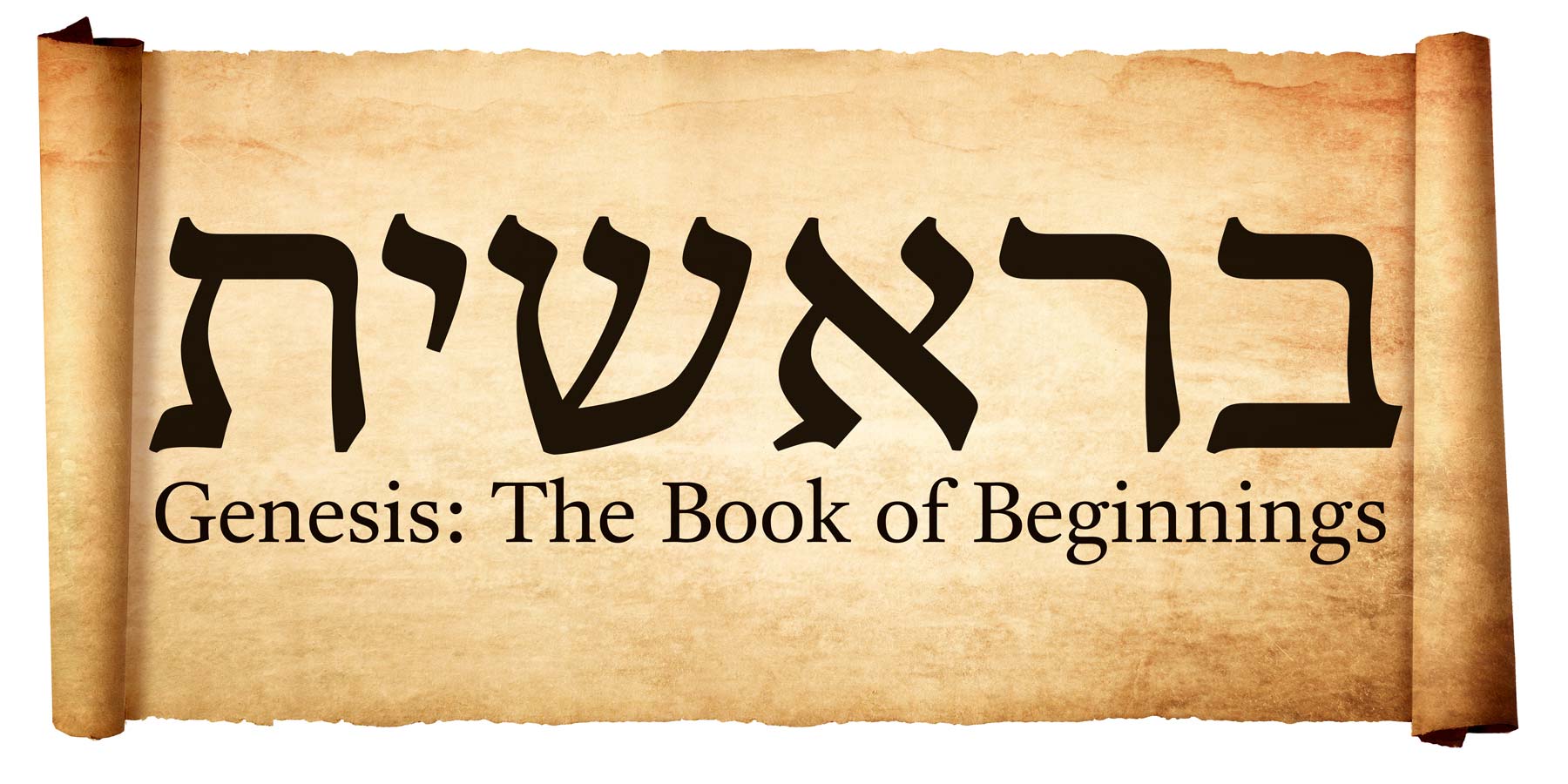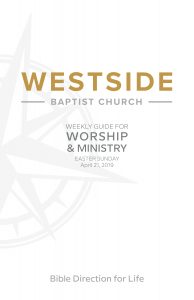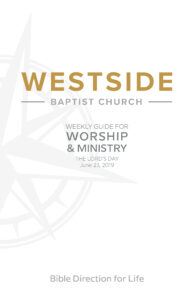Genesis Lesson 18 | 18:1–18:33
Prayerfully read Genesis 18 at least two times and then read the following notes.
Context: Setting the Table
After a stunning introduction, the book of Genesis divides into two unequal halves of five sections each. The first half of the book (2:4–11:26) deals with the history of humanity as a whole, from its creation to the birth of Abram. The second half of the book (11:27–50:26) focuses on the history of the patriarchs. In this first part of the seventh installment of the story of Abraham, the promise of a son for Abraham and Sarah is confirmed even as the judgment of Sodom and Gomorrah draws near.
Content: Reading the Text
Introduction
(18:1–19:38) It is important to note that chapters 18–19, though we will be taking two weeks to cover them, form a single continuous section in the story of the life of Abraham. These two chapters provide clearly parallel panels that we are intended to compare and contrast to one another. In these two panels, both Abraham and Lot meet unexpected visitors, they both feed their guests a meal, they both plead for cities to be spared, they both have their future offspring described, and that is only the beginning of the parallels!
(18:1–8) Abraham the Model Host
(18:1) In the first part of this verse, the narrator gives a “heads up” to the reader that the Lord will reveal himself to Abraham in the story that follows, something that Abraham himself becomes aware of only gradually. Abraham’s initial ignorance of the identity of his visitors is crucial to the flow of the narrative and is confirmed by the interpretation of the writer to the Hebrews (13:2).
(18:2a) Abraham’s visitors are described as men because that is how they appeared to Abraham. Yet it is vital that we distinguish between the Old Testament appearance of God (and his angels) in human form and the incarnation of the eternal Son of God who, at a particular point in time, took on human nature in the person of Jesus Christ of Nazareth. It is in the difference between these two realities that our salvation is found.
(18:2b) While Abraham’s prostration certainly showed great honor to these strangers, his bowing by no means indicates that he (initially!) saw these visitors as more than human (see for example Genesis 33:3).
(18:3a) Throughout chapters 18–19, there are a mind-bending number of switches between the singular and the plural in the conversation between Abraham and his visitors. See also under 18:22.
(18:4) As extraordinary as Abraham’s hospitality was, he still did not wash the feet of his guests—what Jesus did in John 13 was simply beyond belief!
(18:5) Abraham downplays the feast he is about to provide, so as not to make his guests feel as though they were imposing upon him. As we shall see, by no stretch of the imagination could the meal provided be described as a “morsel of bread!” As the Talmud puts it, “Such is the way of the righteous; they promise little but perform much.”1
(18:6) The rapid fire imperatives of the Hebrew text of this verse reflect the urgency with which Abraham pursued his task of hospitality. By even the lowest of estimates, three seahs of flour comes out to over 80 cups—roughly enough for 20 full size loaves of bread! Given that this was the heat of the day, when work of any kind wasn’t ordinarily done, Abraham’s haste was extraordinary.
(18:7) The actions of the father in the parable of the prodigal son bear a number of striking resemblances to the actions of Abraham in this story. In both cases, an elderly man runs (something very much out of the ordinary in Middle Eastern culture) to kill the fatted calf for an unexpected visitor. As the true identity of the children of Abraham is very much in the background of Jesus’s parable, these allusions are unlikely to be accidental.
(18:9–15) A Son for Sarah
(18:9) Apart from the narrator’s comment in 18:1, this is the first hint that we are given that Abraham’s visitors are no ordinary men. Not only do these men know that the name of Abraham’s wife (who has not even left the tent) but they also know of the spelling/pronunciation change which took place only a few months before.
(18:10) There is once again a sudden shift from the plural of verse 9 to the singular of verse 10. As verse 13 makes it clear that the Lord is the one speaking, a number of translations supply the subject here as well.
(18:11) This comment by the narrator serves to explain why Sarah was rebuked, rather than punished for her unbelief—she had long since ceased to have her monthly cycles. See also below.
(18:12a) The word translated as “laughed” is a form of Isaac’s name. Though he is not mentioned explicitly in this passage, each reference to laughter is a not-so-subtle allusion to the name God gave him in Genesis 17:19. “These remarks of Sarah’s show us the basis of her doubts. She laughed not out of cocky arrogance but because a life of long disappointment had taught her not to clutch at straws. Hopelessness, not pride, underlay her unbelief. Her self-restraint in not openly expressing her doubts and the sadness behind them go far to explain the gentleness of the divine rebuke.”2
(18:12b) Rather than giving her a further rebuke for unbelief, Peter focuses in on the respectful way she refers to her husband (1 Peter 3:6). How much more gracious our Lord is to us than we our to each other or even ourselves!
(18:13) Though Sarah had laughed in her heart, the Lord responded audibly. Just as Christ was present when Thomas thought him absent (John 20), so also could the Lord see the struggle in Sarah’s heart—and the secret worries that each of us face as we seek to follow in the footsteps of our Savior.
(18:14) The answer to the Lord’s rhetorical question is both obvious and wonderful—nothing, nothing at all!
(18:16–33) Abraham the Intercessor
(18:18) Once again we see the two-fold emphasis in God’s promises to Abraham. God’s promises to Abraham were never about Abraham alone but also about God’s plan to bless the nations through the fulfillment of promises to Abraham and his immediate descendants.
(18:19) There is a striking contrast between the Lord’s prediction regarding the long-range success of Abraham’s parenting and the sorry conclusion of the story of Lot and his daughters in the second panel of this story.
(18:20–21) The Lord, of course, did not stand in need of further information about the sins of Sodom and Gomorrah. These words are rather intended to teach us that there is no sin, however heinous, that justifies a rush to unconsidered judgment. As the whirlwind pace of public shaming via social media renders such judgment altogether impossible, it is something that no Christian should ever be involved in no matter how deviant the alleged belief or behavior might be. The piranha-esque feeding frenzy so common today even among professing Christians reflects the tactics of the men of Sodom (19:4–11) rather than the example given to us by our Lord.
(18:22) The persistent ambiguities regarding the relationship between the “men” (18:2),the “angels” (19:1) and the “Lord” (18:22) are fully deliberate and are intended to “express the difficulty of human comprehension of the divine world.”3
(18:23–33) “Until now Abraham has spoken with God three times (Gen. 15:2, 8; 17:17). On each occasion his personal welfare has been the sole subject of discourse. Now a change takes place. The next dialogue with God involves a concern for the welfare of others, total strangers.”4 This is in fact the first time that Abraham is represented as seeking to be being a blessing to anyone outside of his immediate family. Though Sodom and Gomorrah were ultimately destroyed, “as the sorry story of Lot at the end of Genesis 19 shows, Abraham succeeded in saving two entire (future) nations: Moab and Ammon.”5 Prayer has far more to do with reshaping our hearts than with re-framing God’s mind.
Credo: Believing the Truth
Abraham was sheltering from the midday heat, waiting for the afternoon breeze that would enable work to resume, when three men suddenly appeared. Though he could not have realized it at first, Abraham’s immediate and extravagant hospitality to these total strangers turned out to be perfectly in keeping with their true identity as the angels of the Lord. Through these representatives, the Lord reiterated his promise that Sarah would be the one to bear the promised seed before revealing to Abraham the soon-coming judgment of Sodom and Gomorrah.
Conduct: Reshaping Our Walk
Discuss the meaning of the text and then walk through the following application questions as you discuss the difference this meaning ought to make in our lives today.
Though God was fully aware of the sin of Sodom and Gomorrah, he chose to model for us the necessity of deliberation before judgment. How might we be tempted to ignore this pattern by prematurely condemning others?
Examples: Participating in social media “mobs”; Treating those we otherwise disagree with as guilty until proven innocent; Disciplining our children based on our “knee-jerk” reaction to their offenses.
Though Abraham had no way of knowing the identity of the three strangers who so suddenly appeared, he nevertheless treated them royally, thereby entertaining “angels unawares.” In what ways could we more closely follow this example of hospitality?
Examples: “Going the extra mile” to make even the most last minute of guests feel welcome; A willingness to show open hospitality even to those we feel have no “claim” on our generosity.
Endnotes
1. as quoted in Sarna 1989, 129
2. Wenham 1994, 48
3. Wenham 1994, 51
4. Sarna 1989, 132
5. Gentry & Wellum 2018, 321




